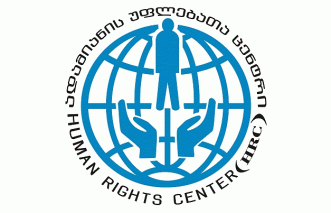Human Rights Center (HRC) is concerned about the judgment of the court acquitting former Chief Prosecutor Otar Partskhaladze with regard to the fact of battery of the former Auditor General Lasha Tordia.
The controversy between the former Chief Prosecutor of Georgia Otar Partskhaladze, his entourage and the then Auditor General Lasha Tordia on May 13, 2017 at the El Centro Club soon came to the forefront of public attention, given the status of the actors in this case. The Auditor General linked the attack on the head of the constitutional body to his own activities, which further increased the public interest in the case.
In order to facilitate the establishment of the objective truth in the case and to protect the rights of the victim, HRC has been involved in the proceedings from the very beginning of the investigation as the victim's representative. From the very beginning, HRC pointed to the possible bias of the state prosecution and the informal influences of Partskhaladze himself, which hindered the objective investigation of the criminal case.
According to HRC, a clear example of this was the initiation of a criminal case by an investigative body with an irrelevant and less sanctioned norm, which was aimed at avoiding possible responsibility for Partskhaladze or imposing less severe punishment.
The Prosecutor's Office began prosecution under Article 126 of the Criminal Code envisaging a battery. However, the facts identified in the case indicated the element of the offense provided for by Article 3531(1) of the Criminal Code, given the availability of a special person protected by the mentioned Article. Despite the fact, neither the investigative body nor, subsequently, the court granted the petition by HRC. Moreover, even in the context of Article 126 of the Criminal Code, the prosecution did not take into account the facts of the case and the request of HRC that the investigation to be directed with a subsumption of an offense committed by a group of persons. The endeavors on the part of the prosecution logically aimed at mitigating the sanction that would be harsher in the case of an offense committed by a group serving as a clear example for the signs of selective justice in the criminal case.
Furthermore, HRC based on the substance of the case, requested that the investigation be led by the General Prosecutor's Office of Georgia, but the request of the victim's representative was not considered in this matter either.
Representatives of HRC also have been carrying out the court monitoring throughout this period ensuring the transparency of the proceedings and the provision of objective information to the public. The shortcomings identified as a result of the monitoring and the artificial procrastination of the proceedings, constantly consolidated the doubts about the tendentious and biased conduct of the whole proceedings and pointed out to the alleged signs of selective justice in favor of particular individuals in the country. With regard to the issue, HRC published an analytical paper in 2020: The Case of Assault against the General Auditor, Traces of Informal Influences in Georgian Justice. The paper assesses in details the legal deficiencies related to the case and also reveals the signs of selective justice based on the assessments of specific facts.
The judgment of the court of the first instance was delivered on May 13, 2017 i.e. almost 4 years later. Suspicions of a deliberate procrastination in the investigation of the case had been repeatedly raised by HRC already before the spread of the pandemic in the country, and subsequent linkage of the proceedings to the pandemic by no means could answer the questions that had existed in the public for years.
According to the court judgment rendered on January 21, 2021, Mikheil Chokheli, a former officer of the Investigation Service of the Ministry of Finance, who accompanied Partskhaladze during the incident, was found guilty in the case. He was fined with GEL 5,000 while the former Chief Prosecutor Otar Partskhaladze was acquitted.
It should be noted that the last hearing in the proceedings was held remotely, in the absence of the lawyer representing the interests of the victim, further in the absence of the media and other stakeholders interested in the proceedings making the suspicions even stronger. The lawyer of HRC defending the interests of Lasha Tordia learned about the judgment from the Prosecutor's Office today, on February 2.
The Judgement rendered by the court is primarily related to the biased and loyal position of the state prosecution in the case, as well as to the inadequate investigation. Secondly, the fact of holding the hearings and announcing the judgment in such a closed manner indicates to the existence of informal influences not only on the investigative authorities but also on the judiciary, as evidenced by the irrational length of the court proceedings and the court judgment.
HRC calls on Georgian authorities to ensure the administration of justice in an independent and impartial manner in the country and to prevent the existence of informal influences during the administration of justice.
Human Rights Center
News
December 13, 2023
Ethnic minorities outside the peace dialogue
November 6, 2023
‘Peace’ agenda of political parties
Popular
Articles
February 13, 2024




